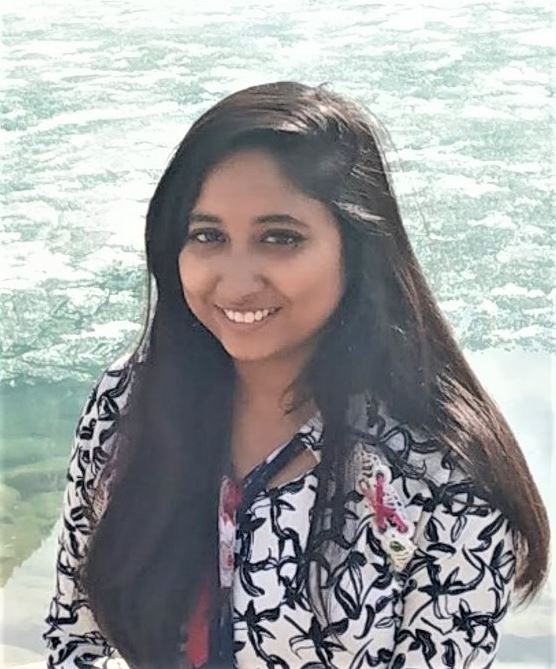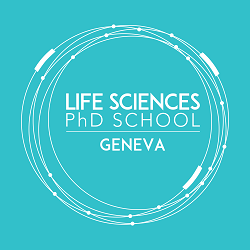Young Scientists' Satellite
The participants selected for a short talk have been already informed.
Register here
General Information
The Young Scientists' Satellite (YSS) 2023 will take place on 15th February 2023 as part of the LS2 Annual Meeting 2023.
It is organized by and for young scientists with the aim to promote networking between them and internationally recognized experts and help young scientists in their career development. PhD students and early career postdocs will be given an opportunity to present their research in short talks in front of peers. Moreover, there will be a keynote lecture and a Panel Discussion.
Panel Discussion:
It will bring together experts from different career paths, representing research and non-research roles in both academia and industry. The Panel Discussion will be aimed at exchanging ideas, thoughts and experiences to help young scientists better navigate their career goals.
For the fourth edition of the YSS, we chose a discussion topic: "Collaboration vs Competition: To Share or Not to Share? Are We Better Together?!".
The Panellists of the YSS 2023 will discuss:
- Does a successful project/ grant application need collaboration?
- How to initiate a successful collaboration and how to choose a collaborator?
- The difference between industrial or academic collaborations?
- How to reduce competition and protect your ideas?
Panellists 2023:
Prof. Giles Yeo - Professor and Scientific Director (University of Cambridge, UK)
Dr. Sophia L. Samodelov - TransBioLine Project Coordinator (University of Zürich, CH)
Dr. Simon Breitler - Co-Founder (EraCal Therapeutics, CH)
Dr. Christian Tidona - Founder and Managing Director (BioMed X Institute in Heidelberg, DE)
Prof. Heinz Müller - Patent Expert in Life Sciences (University of Basel. Former Swiss Federal Institute of Intellectual Property (IPI))
To close the Satellite, there will be a Meet&Greet apéro with the speakers of the Satellite, plenary and symposia speakers of the LS2 Annual Meeting 2023. Attendance at the apéro is restricted to a limited number of participants (first come, first served). Be fast and register now!!
This year the YSS is organized and will be chaired by: Ksenia Kapitanova (University of Geneva), Giulia Mazzini (University of Zurich), Dr. Magdalena Rausch (University Hospital of Zurich), and Sigma Pradhan (University of Bern).
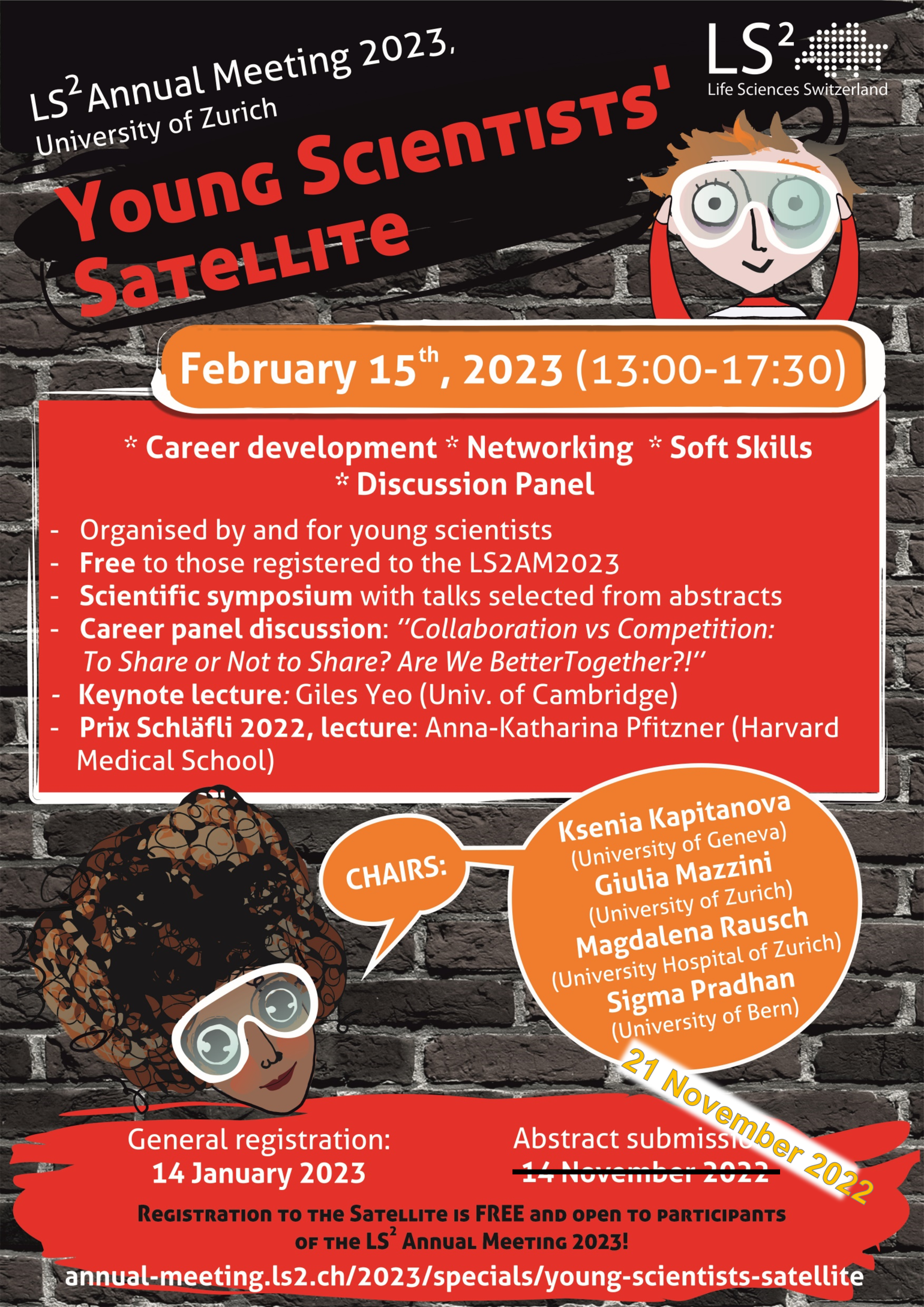
Panel Discussion
Meet our panellist:
Prof. Giles Yeo - Professor and Scientific Director (University of Cambridge)
Bio: Giles Yeo is Professor of Molecular Neuroendocrinology at the MRC Metabolic Diseases Unit and Scientific Director of the Genomics/Transcriptomics Core at the University of Cambridge. He was born in London and lived in Singapore, San Francisco, United States, and since 1994 has been based in Cambridge, United Kingdom. In 1994 he graduated from University of California, Berkeley (Molecular and Cell Biology) and in 1997 he completed a PhD study at University of Cambridge (Molecular genetics). His focus is on the study of obesity, brain control of body weight and genetic influences on appetitive behaviour. He has presented three BBC Horizon documentaries: Why are we getting so fat (2016), Clean Eating: The Dirty Truth (2017) and Vitamin Pills: Miracle or Myth? (2018). Giles was also a presenter on BBC Two's Trust Me, I'm A Doctor. His first book, 'Gene Eating: The Story Of Human Appetite' was published in Dec 2018. His second book, 'Why Calories Don't Count' was published in June 2021. Giles also presented a 3-part programme on BBC Radio 4 'Plant-based Promises' in June/July 2022. He also hosts a podcast 'Dr Giles Yeo Chews The Fat'.
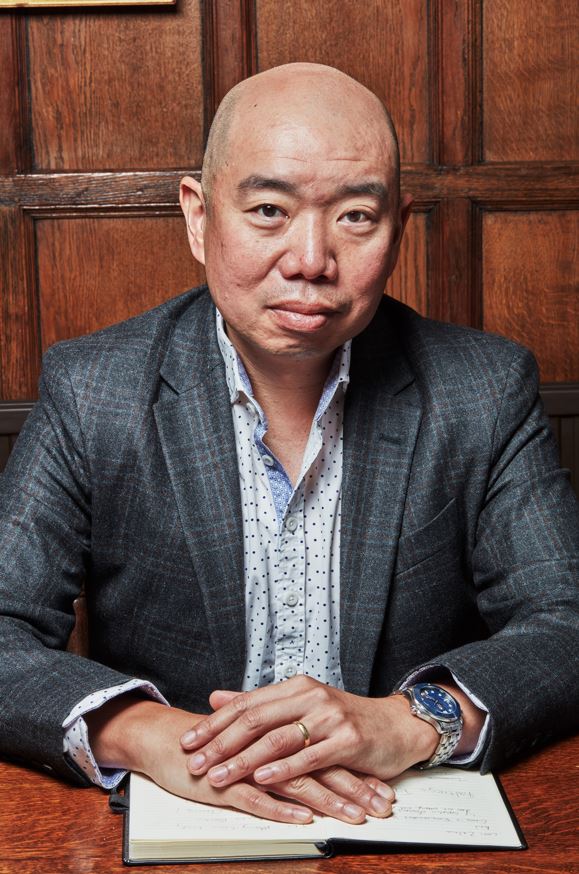
Dr. Sophia L. Samodelov - TransBioLine Project Coordinator (University of Zürich, CH)
Bio: As project coordinator for the international research consortium TransBioLine, I lead a team of experts consisting of scientific researchers, clinicians, and regulatory and sample/data management specialists in the ambitious endeavors of qualifying novel urine and blood-derived biomarkers with the FDA and EMA for the more sensitive and/or specific detection of drug-induced injury of the liver, kidney, vascular, pancreas, and nervous system, in the context of use in phase I clinical trials. These efforts focus on aiding and streamlining decision-making during drug development, offering tools in conjunction with standard biomarkers of drug-induced injury towards ultimately safer and more robust drug development processes. TransBioLine is an IMI/IHI JU2 EU 5-6 year project with 29 partners, spanning the private and public sectors, across Europe and the USA, budgeted at circa 28M EUR. From development to qualification, pre-clinical and clinical trials to support biomarker development across all organ systems are being run by the consortium, with resulting data to be submitted to regulatory agencies to support qualification. Web: TransBioline – Translational Safety Biomarker Pipeline and TransBioLine | IMI Innovative Medicines Initiative (europa.eu). Twitter: @IMITransBioLine.
Research Background: Post-doctoral research focused on drug-induced kidney and liver injury using in vitro and rodent models. PhD in synthetic biology applied towards quantitative plant hormone and light signaling studies using advanced plant and mammalian cell culture and molecular biology techniques. MSc in synthetic biology and developmental biology applied towards D. rerio neurodevelopment and targeted cancer therapies in vitro with advanced molecular biology techniques. BSc in genetics and bioinformatics studying mitochondrial stress and development of high-throughput screening platforms for RNAi studies with C. elegans.
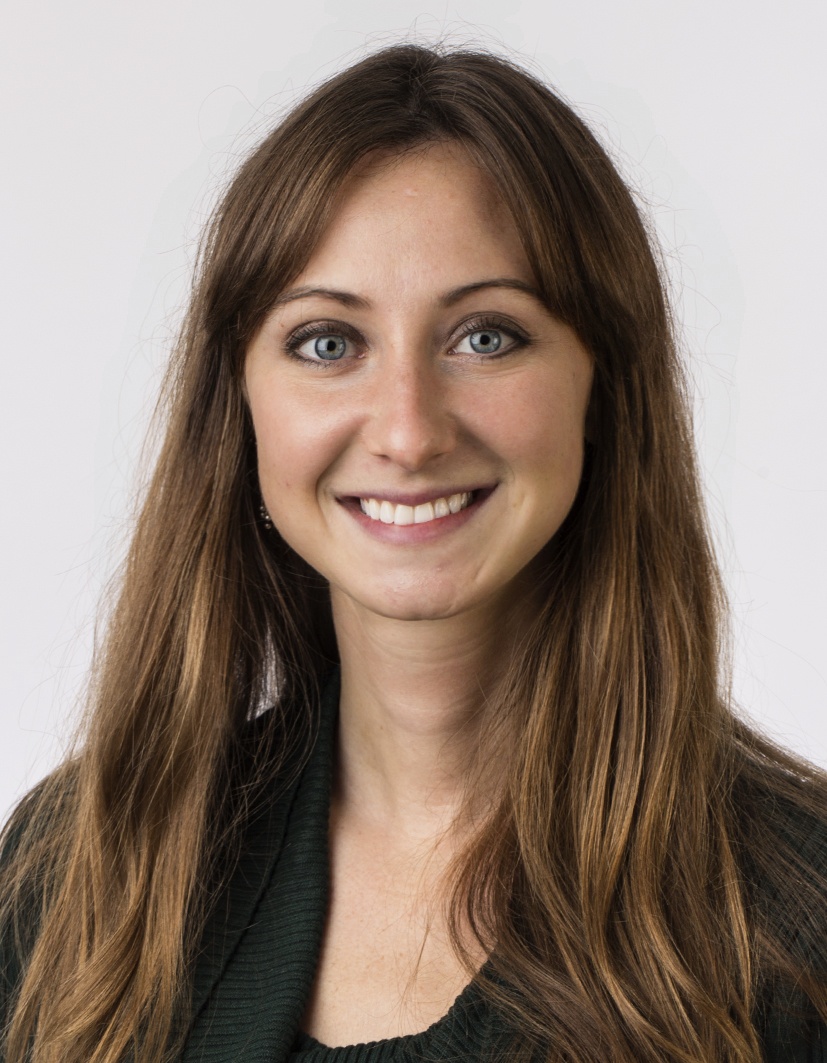
Dr. Simon Breitler - Co-Founder (EraCal Therapeutics)
Bio: Simon Breitler is an organic chemist with a PhD from ETH Zurich and postdoctoral experience at Harvard University. In 2016, he started as a laboratory head in the preclinical Chemistry, Manufacturing and Control (pCMC) at F. Hoffmann–La Roche, before co-founding EraCal Therapeutics, a spin-off of Harvard University and the University of Zurich, where he is currently leading the development of a next-generation anti-obesity drug.
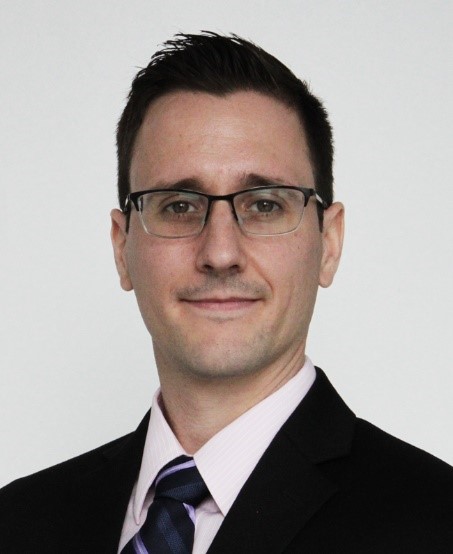
Dr. Christian Tidona - Founder and Managing Director (BioMed X Institute in Heidelberg, DE)
Bio: Christian Tidona is a biotech entrepreneur, business angel, and founder of the BioMed X Institute in Heidelberg, Germany. He studied molecular biology and received his doctoral degree in virology from the University of Heidelberg. Throughout his entire professional life, his focus was always to seed innovation at the interface between academia and industry. Christian is co-founder of BioRN, the cluster management organization at the center of one of the strongest biomedical innovation hubs in Europe, co-founder of the Heidelberg Institute for Stem Cell Technology and Experimental Medicine HI-STEM, member of the International Board of the Weizmann Institute of Science, and member of the Board of Directors of Yeda Research and Development, one of the world’s most renowned technology transfer organizations in Israel. Christian is married and the father of two children.
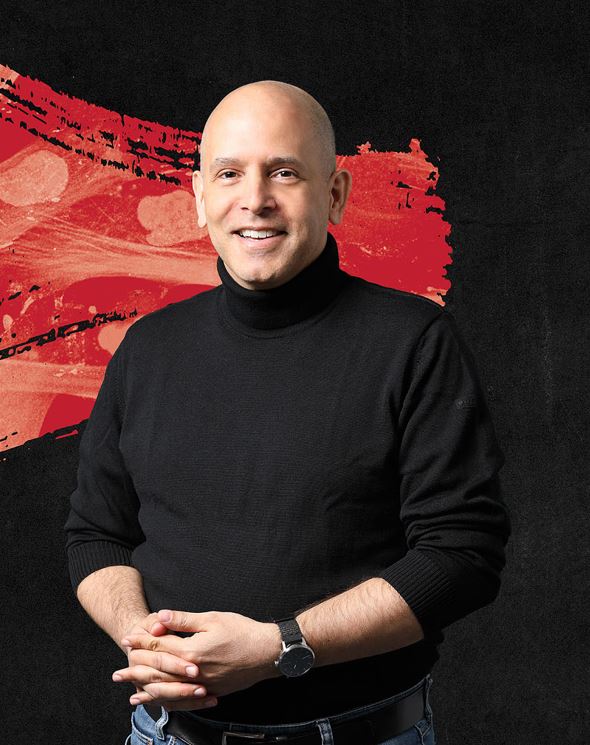
Prof. Heinz Müller - Patent Expert in Life Sciences (University of Basel. Former Swiss Federal Institute of Intellectual Property (IPI))
Bio: Heinz Müller is Professor emeritus for medical biochemistry at the University of Basel and Patent Expert at the Swiss Federal Institute of Intellectual Property in Bern. He was educated as a biochemist at the ETH Zurich, where he also received his PhD in 1983. He was then setting up a research lab at the Department of Hematology at the University Hospital Zurich. In 1985, he moved to the US to work for several years at different research institutions in San Diego (Veterans Administration Hospital San Diego and UCSD, Scripps Research Institute) and Chicago (Northwestern University). In 1991 he returned to Switzerland to work as a principal investigator in breast cancer research at the University of Basel. From this university, he received his Venia docendi and the title of a professor. In 2002, he started working in the patent department of the Swiss Federal Institute of Intellectual Property in Bern while remaining a regular lecturer in biochemistry at the medical faculty of the University of Basel. At the Swiss Federal Institute of Intellectual Property, he is responsible for training and continuous education at the patent department and the interaction with Swiss universities. He also teaches intellectual property law at different Swiss universities, including the Universities of Basel, Bern and ETH Zurich. These courses are aimed in particular for life science graduate students and students for medical technology. He also has written extensively on a number of pertinent articles for newspapers, magazines and other publications on the topic of intellectual property.
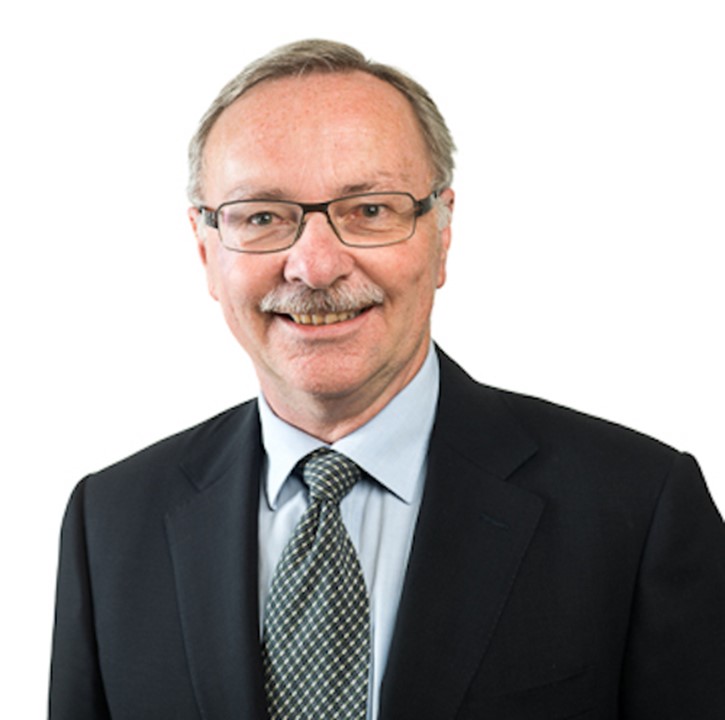
Chairs YSS 2023
Giulia Mazzini University of Zurich
Giulia is currently a biomedicine PhD student at the Institute of Veterinary Physiology, University of Zurich. Her doctoral research focuses on the role of amylin - a not-so-well-known peptide hormone - on the brain and metabolism. Her main interest is neuroscience. In the past, she worked on psychiatric disorders both in preclinical and clinical studies. She is a passionate researcher, always curious and willing to ask questions and to know more. She is a social butterfly: she loves to create networks with people coming from different backgrounds. She strongly believes collaboration among scientists is of key importance for successful results: teamwork makes the dream work!
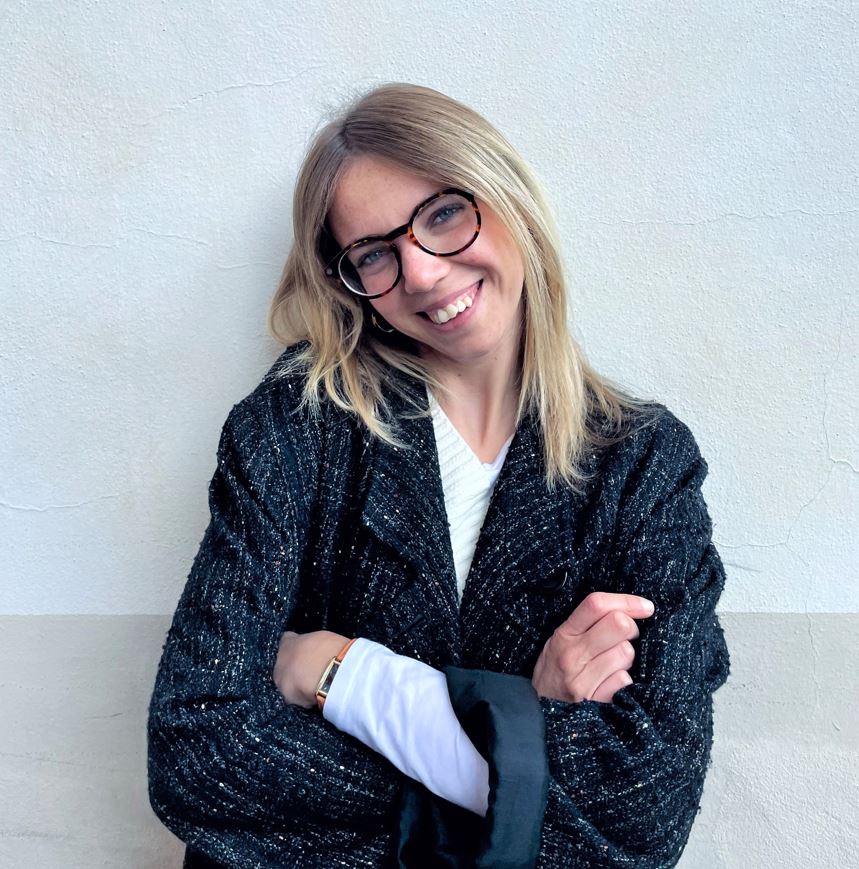
Ksenia Kapitanova University of Geneva
Ksenia is a cell biologist and histologist. Currently doing a PhD in the field of atherosclerosis at University of Geneva, focusing on the role of smooth muscle cells in the disease development and progression.
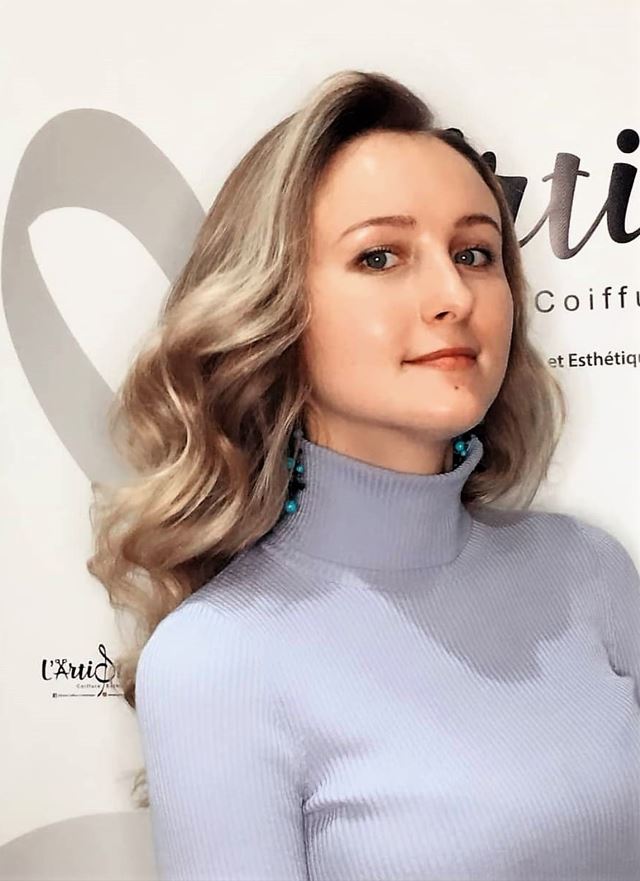
Dr. Magdalena Rausch University Hospital of Zurich
Magdalena works as a postdoctoral researcher at the University Hospital Zurich in the Clinical Pharmacology and Toxicology department. Her projects focus on elucidating molecular mechanisms related to drug-induced liver injury. Magdalena did her PhD in the Molecular Pharmacology Group at the University of Geneva. During her PhD, she developed and validated anti-cancer multidrug combinations.
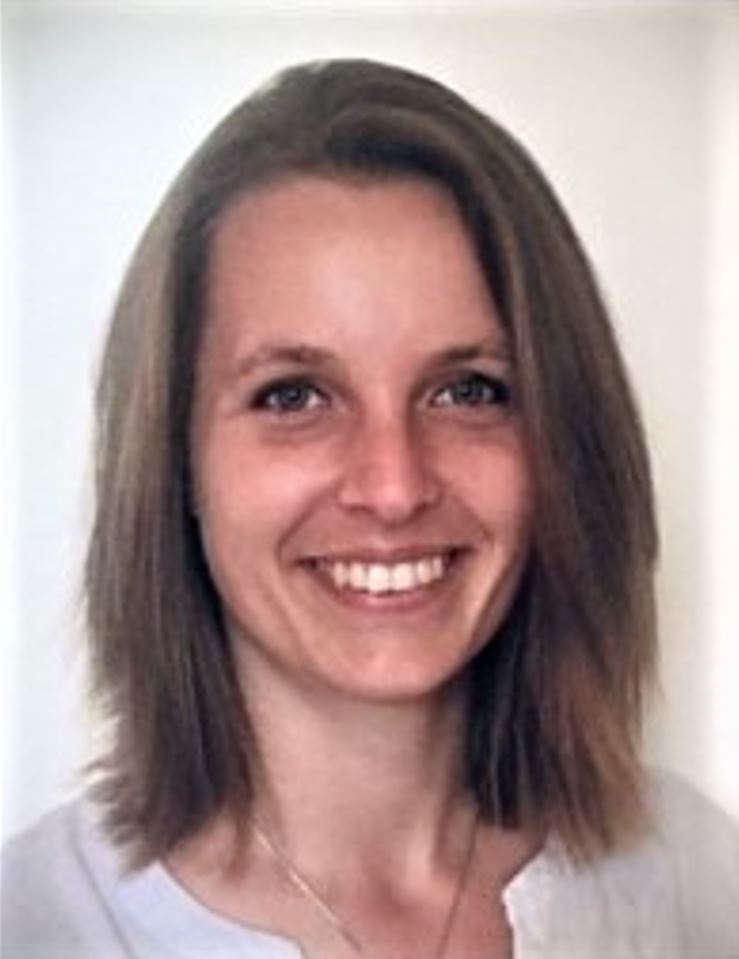
Sigma Pradhan University of Bern
Sigma is currently a Ph. D student at the Institute of Cell Biology, University of Bern. She works in the organismal systems biology lab, where her doctoral research focuses on the parental effects of dietary restriction in C. elegans on ribosome expression and growth dynamics, and the regulatory mechanisms involved. She enjoys organizing events, networking, and inter-disciplinary discussions with both scientific and non-scientific communities.
